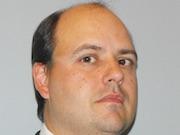Professional standards – a cornerstone of the sector

Professional standards are a key underpinning to many industries and vocations. The history of standards in our sector is complex and it is worth understanding how we have arrived at the standards as they are now.
The move from FENTO to LLUK standards simplified things, but LLUK still operated on a premise of competency. Post the Lingfield review, in a deregulated space where standards and qualifications to teach had a very different meaning, it was important that new standards for our sector set a different tone, one more in tune with the needs and careers of teaching staff themselves, less related to regulatory and inspection based needs.
One of the first jobs of the Education and Training Foundation was to look at how to achieve this, and an extensive consultation process culminated in the launch of the Professional Standards in May 2014. One year on, they have been downloaded over 44,000 times, we have sent out over ten thousand hard copies, and the standards are the most commonly visited and searched for item on our website. Whilst we can pat ourselves on the back for a resounding success, there is much still to be done, and the standards are still not fully embedded in the culture and consciousness of proportions of our sector.
Possibly the key to understanding what the standards are, and how they relate to you is to understand that they are not competencies, but rather are aspirations. What the consultation showed was a desire to capture and enshrine two things – what we would all want to be doing as teachers to get better, and what evidence and research tells us helps teachers to do that. As a teacher myself, who was not involved in that consultation (I joined the Foundation a little after their release) it is very difficult to read the list of 20 standards and disagree with the aims and hopes of these simple but powerful statements.
I think it is crucial that we have in a deregulated sector a set of standards that are more in keeping with the diversity and breadth of our workforce, and we have seen over the past year how well they underpin CPD and development across the sector. These standards can apply to a new entrant to the sector working part time in an ITP, or equally to a highly qualified advanced teaching practitioner. How these two individuals can find common ground in the standards is in the conversations to be had, the sharing, dialogue and collective experience of these people, not in their capacity to be measured against one static benchmark. It is a potent and simple thing, to be able to work with the same standards set at any stage of your teaching career, and something that once understood has been very well received.
To offer support to teachers in using the standards we recently published a workbook to help support practitioners and a self-assessment tool. Simple and straightforward, they give teaching staff a chance to self-assess, and give guidance as to what forms of evidence might work if called on to ‘prove’ their engagement with the standards. Next up will be a guide for HR and quality managers, to support the teams that are charged with that difficult question – how do we know our staff are using the standards, and how well are they doing it? We welcome other suggestions and feedback, from any part of the sector as to how we can support you better, or sharing how the standards are working (or maybe need clarifying) – after all these standards are sector owned and designed.
Any deregulated system takes time for people to fully adopt – with no statute breathing down your neck a more leisurely pace is to be expected. Bearing that in mind, I think the point to be made here is not ‘why are some organisations not using these yet’ but rather that it’s remarkable how quickly these standards have been adopted, and how many organisations and individuals have already seen the transformational and positive power of these twenty simple aspirations for teaching staff.
For further information click here
Paul Kessell-Holland is programme manager of professional standards and workforce development at the Education and Training Foundation












Responses